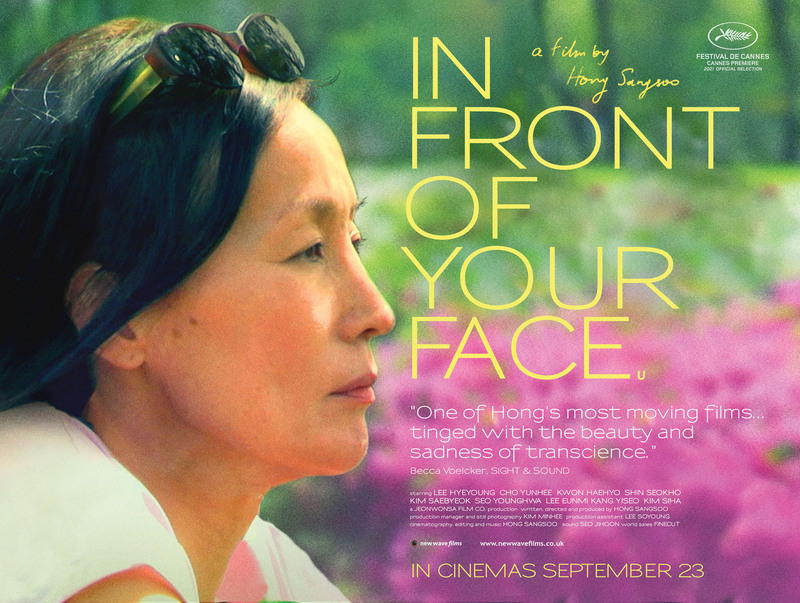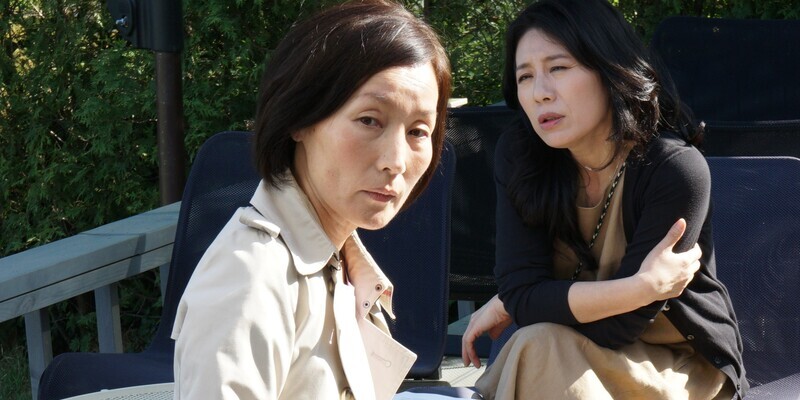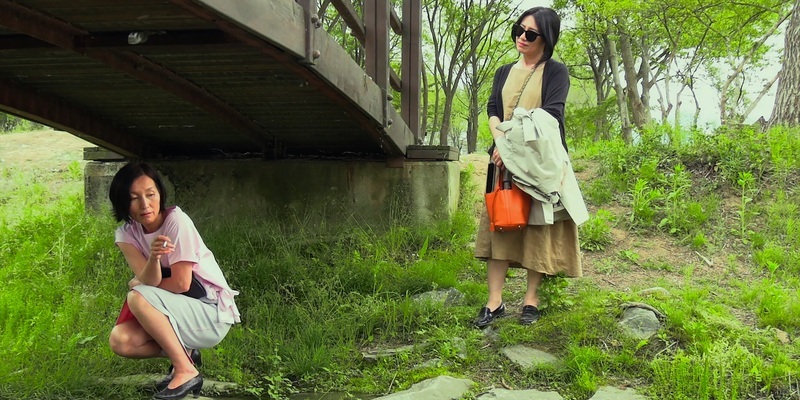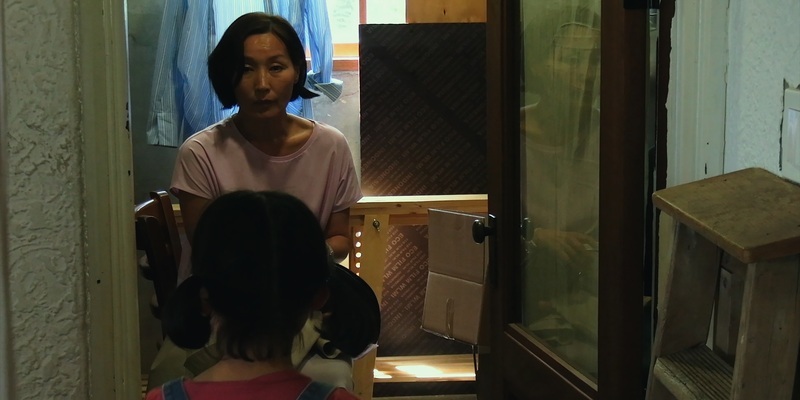
A once popular Korean actress returns home to discuss a part with a
director and break some news to her sister.
Review by
Eric Hillis
Directed by: Hong Sang-soo
Starring: Lee Hye-young, Jo Yoon-hee, Kwon Hae-hyo

Films tend to favour adapting novels rather than short stories, which
has always seemed strange given the limited time you have to tell a
story within a movie's running time. Korean auteur
Hong Sang-soo writes his own movies, but they often feel like
adaptations of short stories. A Sang-soo film will usually play out
within a brief time frame and will be composed of less than a handful of
scenes. His latest, In Front of Your Face, continues this template, and with its bittersweet ending it might be
mistaken for an adaptation of a Raymond Carver story.

In what might be considered method casting, Sang-soo casts
Lee Hye-young, an actress who was one of Korea's biggest stars in
the 1980s, as Sang ok, a former movie star who moved to the US,
presumably to make it in Hollywood, but ended up broke and working in a
liquor store. Like the protagonist of Xavier Dolan's
It's Only the End of the World, Sang has returned home to break some major news to her sister Jeong
(Jo Yoon-hee), but can't quite find the right moment.
The movie plays out roughly across two lengthy scenes with a brief
intermission in which Sang visits her childhood home, now a café. Before
then we watch as she spends the morning with Jeong, who is rather cold
in her reaction to the details of how her once famous sister has spent
the last few years. When the pair go the café run by Jeong, Sang spills
some drink on her blouse but insists she doesn't need to change, despite
having a meeting with a filmmaker who is interested in reviving her
career schedule for the afternoon. Jeong is baffled by her sister's
indifference, but the audience begins to surmise that something major
must have happened to Sang to make her view life in this way.

The second half of the film concerns Sang's meeting with the filmmaker
in question, Jae won (Sang-soo regular Kwon Hae-hyo). Jae won has
acquired the keys to a pub for a private meeting/drinking session, and
outlines his vision for how he intends to spark a comeback for Sang,
regaling the actress with tales of how he fell in love with her screen
persona. Sang bluntly asks the director if he wishes to sleep with her,
and he answers with a very honest affirmation. The reason for Sang's
bluntness is then revealed as she makes a revelation to Jae won.
What makes Sang-soo one of the finest writers of human speech in modern
cinema is how he understands that conversations aren't always dialogues.
We're all guilty at times of simply waiting for someone to stop talking
so we can get our own point across, rather than actually listening to
what the other party is saying. Sang-soo's films are filled with moments
in which his characters try to make a point to someone who is too
concerned with their response to really process what's being said. The
second half of In Front of Your Face doubles down on this
idea. [Spoiler alert] Sang's revelation
is that she only has months to live, and in the classic fashion of the
narcissistic artist, Jae won's reaction isn't to offer sympathy or aid
but to begin to figure out how to work around this "problem." On the
spot and fuelled by alcohol, he comes up with the idea of beginning to
shoot the movie the following day, but Sang has been around the block
enough times to know this probably isn't going to pan out.

Sang-soo is one of a very small group of filmmakers who can make a
conversation cinematic. In the lengthy conversations found in his films
it's often what's left unsaid that matters rather than what the
characters feel comfortable discussing. Sang and Jeong's interaction is
a classic example of this. Sang has something very important to say but
doesn't know how to say it to someone it will likely upset. With Jae won
however, she is at ease and breaks the somber news with a girlish laugh.
Jae won doesn't mean anything to her and she knows the movie isn't going
to get made, so why beat around the bush? Sang-soo closes his film with
his heroine laughing to herself. Her ill health has made her realise
that sometimes you just have to laugh. As Kris Kristofferson sang,
freedom's just another word for nothing left to lose, and Sang has
finally found true freedom.


